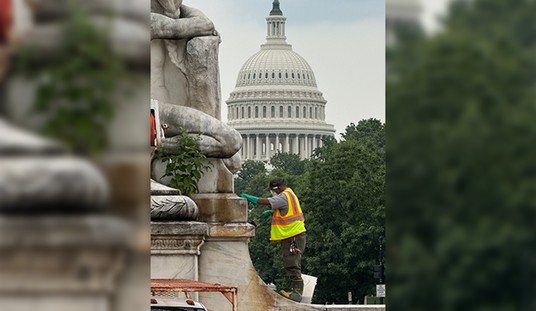On May 28, President Trump submitted “22 rescissions of budget authority, totaling $9.4 billion” to the U.S. Congress.
According to Office of Management and Budget Director Russell Vought, the rescission package will “cut wasteful foreign assistance spending at the Department of State and USAID” and “a public media system that is politically biased and is an unnecessary expense to the taxpayer.”
If Congress passes the rescissions package, Vought notes it “would have a commensurate effect on the Federal budget deficit and the national economy, and would result in less borrowing by the Federal Government.”
Under the law, Congress has a 45-day window to pass the rescission package. So, time is ticking.
As of now, it looks like the package will pass, which is generally good news.
However, there remains work to be done as the Senate voted to preserve $400 million. Now, the $9 billion version must be passed by the House.
The Senate voted to preserve $400 million in funding for the US President's Emergency Plan for AIDS Relief (PEPFAR), a program created by President George W. Bush in 2003. Over the past two decades, “the U.S. government has invested over $100 billion” in PEPFAR. That is a lot of money.
Without question, PEPFAR is a great program that has helped fight AIDS over the years.
But what if we can’t afford it anymore?
What if we are in such deep debt that even the idea of sending $400 million overseas is absurd on its face?
As I write this, the national debt stands at $37.1 trillion.
Interest payments alone on this massive debt now eat up a substantial portion of federal spending. In fact, “As of June 2025 it costs $921 billion to maintain the debt, which is 17% of the total federal spending in fiscal year 2025,” the U.S. Treasury Department recently noted.
In the grand scheme of it all, the current rescission package is only the tip of the iceberg.
The approximately $9 billion claw-back amounts to less than 0.1 percent of annual federal spending. It is the low-hanging fruit.
This year, the federal government will spend more than $7 trillion. A large chunk of this money is already designated for mandatory spending programs like Social Security, Medicare, and Medicaid. A small chunk falls under the category of discretionary spending, which Congress can alter during the annual appropriations process.
Another method, a more efficient method, is for Vought to send specific rescission bills that simply require a majority vote in both houses of Congress.
Via the rescission process, Trump and Congress could make substantial and permanent cuts. By the looks of it, it sure seems like President Trump and Vought are ready and willing to use this tactic to enact the dramatic cuts that are required sooner rather than later.
Vought and Trump clearly indicated that they “look forward to working with the Congress to identify additional opportunities to put the Nation's fiscal house back in order” with future recession packages.
The big question is whether Congress can summon the courage to vote in favor of these long-overdue and much-needed spending cuts. I hate to say it, but this one barely passed the Senate. Vice-President JD Vance had to break a tie for the measure to move forward. What does this mean for future rescission packages, which will likely include more difficult cuts?
So, in the spirit of encouragement, I’d like to channel Rob Schneider’s recurring character in several classic Adam Sandler movies: Congress, you can do it!
Chris Talgo ([email protected]) is editorial director at The Heartland Institute.














Join the conversation as a VIP Member